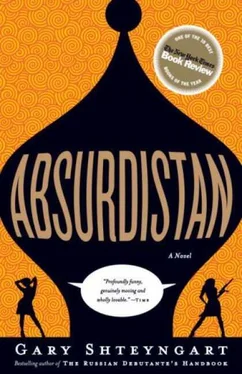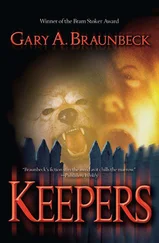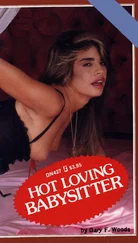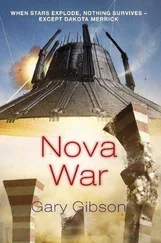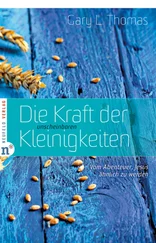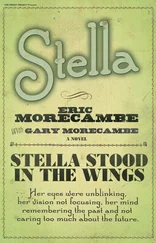From a chink in the cardboard blocking my hotel window, I watched her squeeze in behind the wheel of her American Express–flagged Navigator (the passenger seat had been taken up by a man in a fine V-neck, hunched over a Kalashnikov) and speed off toward the part of the Sevo Terrace that best resembled Santa Monica. She was so beautiful when in motion, tough and bejeweled like a poor Mediterranean woman just come into money. I had been angry at her for neglecting me, yet every time I saw her, I fell in love again. The air around me was light and feminine, filled with the promise of mango-scented moisturizers and duty-free.
I sat on the living room divan, letting a mysterious male baby-child crawl over my legs, farting profusely and making a desperate hacking sound out the other end. Better him than the roaches that used my body like a caravanserai all night. I poured myself a glass of somebody’s contraband Hennessy and lit up a contraband cheroot. My hands trembled, and not only from the hunger.
I had a problem. I wanted to do right by Nana, but I didn’t want to go to the pier to see Mr. Nanabragov. Don’t get me wrong, it wasn’t the gunfire and the mortar shelling but the prospect of seeing that little girl whose mother I had clocked, that little Yulia. Did I do right by leaving her with her momma? Should I have taken her with me? Are we best off with abusive parents or no parents at all? Some days, I tell you, I just want to break this world in two.
The baby-child quietly choking on my lap was starting to smell unnaturally, and my lap wasn’t doing any better. I stole some perfume from one of the sleeping Absurdi dames and, thus scented, walked out into the sunshine.
A pall had settled over the city. Looking up, one could discern a scrim of dust particles above the ravages of the International Terrace. This dust, which one hoped would have deflected the sun, instead locked in its heat so that the atmosphere sizzled with instant brush fires, magenta oil slicks, and the deep blue waft of office chemicals. The air was so alive and full of instantaneous reactions that the city’s remaining citizens looked beaten and lost by comparison. A few of the more active men crawled out of the rubble and offered me packs of Russian cigarettes for US$10 apiece. “Not a smoker,” I let them down gently.
The rest of the populace was too tired to shoot at me, too tired even to acknowledge such a large presence among them. For the first time since my arrival in Svanï City, no one appreciatively followed my stomach with their hungry eyes, no one silently congratulated me on my good fortune. Walking in this peaceful manner, I soon crossed over to the waterfront esplanade, whose grassy medians had assumed the look of an urgent Red Cross appeal. Hectares of tents made out of blue United Nations High Commissioner for Refugees tarp lined the former strolling ground; the graying grass and the sickly palm trees had been eaten by man and mule; the Turkish bumper cars had been stripped down to the chassis, their crude mechanical essence exposed.
I looked around apprehensively. Satisfied that Yulia and her dastardly mother were nowhere in sight, I walked down the pier toward the pink clamshell of the Lady with Lapdog. Mr. Nanabragov and Parka Mook were lunching beneath a faded SCROD poster that featured their faces along with the threatening tagline THE INDEPENDENCE OF THE PEOPLE WILL SOON BE REALIZED! At present, the two friends looked even more satiated than their own beaming visages above them—Mr. Nanabragov, lost in concentration, was spearing a sturgeon kebab with one fork and brandishing a green pepper with another, while the playwright dabbed his chin in a raspberry compote, his hooded eyes half closed. They were surrounded by men in black T-shirts with blue-veined biceps, their hands crisscrossed in Soviet prison tattoos. A speedboat bearing the Russian tricolor bowed and scraped along the pier, her hold being emptied of enough cigarette cartons to kill off the remaining population.
Mr. Nanabragov dropped his pickle with a twitch, ran over, and kissed me on three cheeks. He had a new nautical smell about him—sea urchin, sea damp, and sea salt—and his muscular Southern nose stabbed me in all my soft places. “Dear one, dear one,” he cried. “You’ve spoken to my Nana. You’re not upset with me for not letting you stay with us? Family comes first, no? If there were more room in my house, yes? Or if you married our Nanachka, finally, hmm?”
“I’d marry her just to get out of the Intourist,” I joked.
“Would you?” Mr. Nanabragov said seriously. “We could have a small private ceremony. I suppose the political circumstances are not the best right now. But as you can see, we’ve regrouped a little.” He pointed to the bandits chewing on toothpicks around the half-comatose figure of Parka Mook. “We’re replenishing the SCROD coffers through the booming cigarette trade.”
“Would you like to buy some?” a young maritime thug asked me, brandishing a carton of something called Business Class Elite, featuring an Aeroflot plane plummeting to the ground. “Eighty dollars.”
“That’s my future son-in-law you’re talking to,” Mr. Nanabragov objected. “Give it to him for forty.”
“Not a smoker,” I said.
“Oh,” Nanabragov and his new friend sighed.
“How’s the SCROD going?” I said. “Any media interest?”
“It’s still very hard to convey our message to the world,” Mr. Nanabragov said. “Of course, the Russians are all over us. Look at this!” From Parka Mook’s lap, he snatched a week-old copy of a popular Russian newspaper called Arguments and Facts. Next to a picture of Putin blandly conveying displeasure to his cowering cabinet, I spotted the grainy likeness of three Ukrainian mercenaries and the former KGB agent Volodya hanging off the terrace of the Hyatt. Their snapped necks had been tied to the charred remains of four satellite dishes, their arms spread out at modest angles like the swept-back wings of an airplane. It was a lousy likeness. The poor Ukrainians appeared heavier and more menacing than they had when they were alive, and the long shot didn’t capture the peasant-blue equanimity of their eyes.
“Jesus Christ,” I said in English, exhausting the last thimbleful of compassion that remained.
“The Russians are threatening to bomb us for this,” Mr. Nanabragov said, “as are the Ukrainians. Now, if only the Americans would bomb us, then we’d really be somewhere.”
“What about the UN?”
“They sent over some tarps. Nothing much we can steal. Listen, Misha, you should go talk to Israel. It’s time. We know exactly who you should see. There’s a Mossad agent in the Intourist Hotel. He’s pretending to be a Texas oilman named Jimbo Billings. Go chat him up. As your future father-in-law, I’m begging you on my knees.” To the contrary, he remained standing.
“I would do anything for you, Mr. Nanabragov,” I said. “Alas, I had typed up my proposal for the Museum of Sevo-Jewish Friendship on my laptop computer. I’m sure it was destroyed when the Svanï bombed the Hyatt.”
“Actually, we have your laptop right here,” Mr. Nanabragov said, pulling the sleek gray device from under his chair. “Some of our boys paid a visit to your room after the attack. Just picking up some odds and ends.”
“I’ll do my best, Mr. Nanabragov,” I said. “But you must know that Nana wants to leave the country. She’s a young girl. She’s got her NYU to consider.”
“Go! Go!” Mr. Nanabragov twitched. “The SCROD first, and then our Nana.”
I dutifully heaved my way back to the Intourist, where I was informed that indeed a Jimbo Billings was on the premises. I ascended to the top floor, outmaneuvered the portly floor attendant, and knocked on Jimbo’s door. “Excuse me.” I coughed. A perfectly Russian voice promptly sent me to the khui.
Читать дальше
